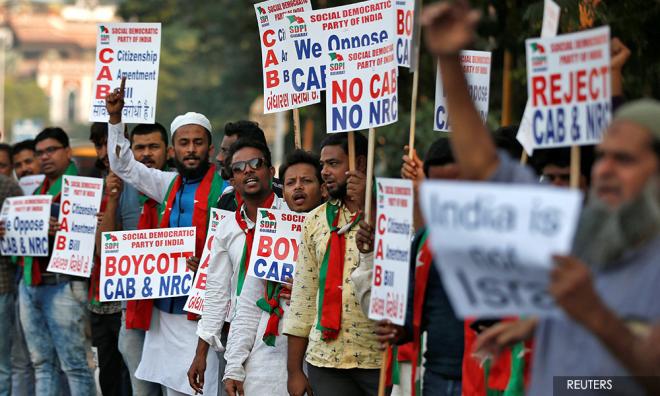
India’s parliament on Wednesday passed a contentious bill that will allow citizenship for persecuted Hindus, Sikhs, Buddhists, Jains, Parsis and Christians who fled Muslim-majority Pakistan, Bangladesh and Afghanistan before 2015.
Clearance of the Citizenship (Amendment) Bill triggered widespread protests as it excludes Muslims living in the remote northeast, a move critics say undermines the secular constitution.
Passage of the bill was a key election promise by Prime Minister Narendra Modi, re-energising his nationalist, Hindu support base.
How did the bill secure parliament’s support?
Modi had promised that his party would grant citizenship to the six communities who according to the government have historically faced persecution on grounds of religion in the three Muslim-dominated countries. Lawmakers belonging to his party voted in favour of the bill.
What do critics say?
They accuse Modi’s government of drafting rules to favour its hardline Hindu agenda aimed at disturbing permanent settlements belonging to Muslims.
Who does the bill leave out?
Opposition parties say the bill is discriminatory as it singles out Muslims, who make up nearly 15 percent of population. The government says that Pakistan, Afghanistan and Bangladesh are Muslim-majority countries, so Muslims cannot be treated as persecuted minorities.
Who could suffer?
Rights organisations say Modi-supporting lawmakers have cleared the bill to justify deportation of thousands of Muslims living in the northeastern state of Assam and unable to provide documents to prove Indian citizenship.
What are the discrepancies?
The bill does not clarify why minority migrants from Bangladesh, Pakistan and Afghanistan are favoured over those fleeing Sri Lanka and Myanmar from where minority Muslims have sought refuge in India.
What’s next?
The law will likely be challenged in India’s Supreme Court on the grounds that it violates the secular constitution.
- Reuters



No comments:
Post a Comment
Note: Only a member of this blog may post a comment.